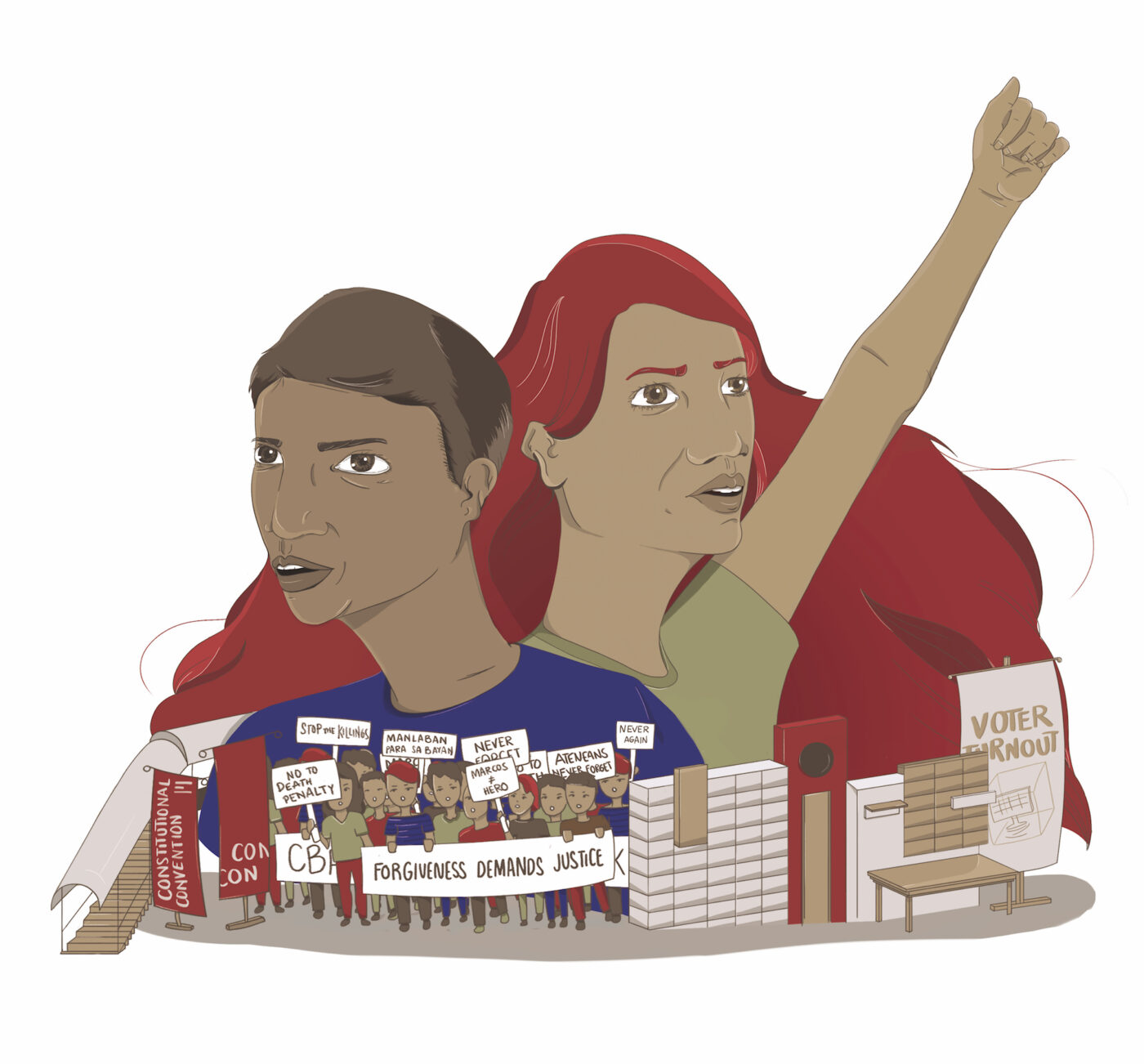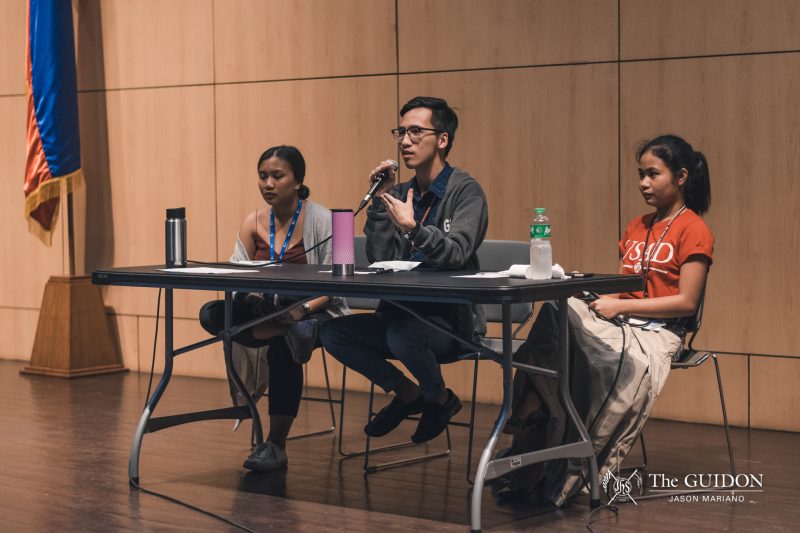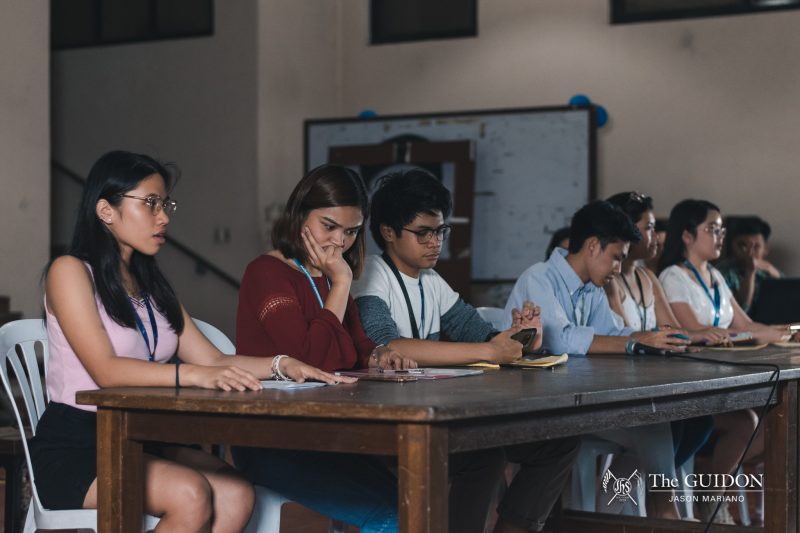What more can the Atenean do?
Last year, the Sanggunian was called to lead the change and cultivate a more politically engaged student body. As the threats of state-sponsored violence, fake news, and historical revisionism mounted, so too did the need for voices of dissent and voices that dared speak truth. Urgency demanded action. Our national situation implored everyone to act.
Through the mobilization efforts of the Sanggunian and student leaders of Atenean organizations, students responded and took to the streets to defend the truth. No longer could we ignore the plight of the country. With placards in their hands and bullhorns at the ready, students rallied against a multitude of issues including extra-judicial killings, the death penalty, and threats against press freedom. It was a testament to what directed political fervor could achieve.
Winds of change
The political climate has changed drastically even in the confines of our campus. We are living in the aftermath of the 2016 Sanggunian Constitutional Convention, a massive overhaul that most notably abolished the quota for the elections, and created more provisions for students’ rights and representation.
More recently, school issues continue to escalate. The Collective Bargaining Agreement negotiations between the Ateneo Employees and Workers Union and administration that stretched for months on end put everyone on edge, even going so far as to challenge the University’s “Man for Others” motto. The dip in the student population caused by the K-12 also had major repercussions, putting tight restrictions on school budgets.
This is now our reality. Some consider the Ateneo to be a sanctuary but the conditions on campus have slowly been mirroring the uncertainty of the outside world—as our national order changes, so too does our University’s. The Sanggunian in particular was inevitably caught in the crossfire of these changes; nonetheless, they were successful in resurging Atenean involvement in national affairs.
But certain problems remain. The 2017 Sanggunian Elections echoed the trend of past years as the voter turnout was still painfully low at 18.6%, and some positions remained empty even without the quota. The stakes are now higher. With no quota, the magnitude of one vote means more. We cannot afford to let the same thing happen in the coming elections. The Sanggunian and the student body both have to play their parts in meeting the demands of these trying times.
Lest we forget, responsibility rests not on the Sanggunian alone, as the Sanggunian relies on the student body’s support. For one, it is no secret that the lack of participation from a significant portion of the student body has been a major dilemma for campus politics for many years now. Passivity is still a challenge even with the efforts of the Sanggunian in involving its constituents.
Addressing this issue will also require change from within. Students have to recognize the dire situation that we find ourselves in at present and actively choose to get involved. After all, along with the Sanggunian, the actions of the student body itself will dictate the school’s place in the political climate for the years to come.
Whether we like it or not, we are part and parcel of our national context. Now, more than ever, we find ourselves under the spotlight as people from all over the country begin to monitor and criticize our every move. We are the face of the Ateneo. Apart from going beyond the walls of our University, we have to ensure the cultivation of our own campus politics.
Thus, as voters, the student body bears the responsibility of being critical and informed. We cannot complain about not feeling the presence of the Sanggunian or be disappointed in their efforts if we take for granted our power to choose our future leaders. We have the capacity to steer the direction of our Sanggunian, but unless we get involved and make our votes count, campus politics will never reach its full potential.
More than activism
As the future Sanggunian continues the endeavor of politicizing the student body—a noble and necessary venture in our trying times—it should remember that action, in its utmost political sense, must go beyond the parliament of the streets. Action is not activism alone. Activism is but one component through which we can disclose ourselves and take initiative.
There arises a danger in equating politicization with a culture of rallying. In attempting to capture the “bigger picture” of our national context, this approach to engaging the student body leaves blind spots in politics closer to home. As the Sanggunian pushes for externalized engagement, we have to ask its future officers: What more can we do to develop campus politics? What else needs to be done? As we tackle the plight of our nation, let us keep advancing our own battles.
Though the current Sanggunian had made strides to address internal concerns, its efforts were met with challenges. Officers talked of upholding Student Rights And Welfare (STRAW), but given the lack of manpower, a fully enforced STRAW Desk was never realized. The 2016 Constitution’s inclusion of sectoral representation did not result in the active participation it had hoped; still there are no sectoral representative candidates for this year’s elections despite the Student Judicial Court releasing guidelines last August 2017.
While on the hill
The Sanggunian must now assess what is being left behind when they rally students to march on Katipunan. It needs to reflect on and identify the issues in our campus that, in moving toward a nationally-oriented Ateneo, it had neglected, forgotten, or overlooked. The concerns of the campus may be less far-reaching and extensive as the nation’s, but their immediacy and pertinence to the Sanggunian’s office requires committed action.
At the end of the day, what the Ateneo needs is more than a Sanggunian that can rally its students against threats to our nation. Politicization entails a life of action which demands a Sanggunian that can inspire and empower students to take initiative in tackling issues both outside and inside campus. As the past year witnessed a resurgence of political fervor in the Ateneo, the imperative for this year’s officers is to see that fervor deepened.
We call for a Sanggunian that incarnates the meaning of action.
Action must be pervasive, for the nature of politics itself is pervasive. The political occurs beyond mobilizations and saturates all aspects of life. The matters within our University that we oft take for granted as being outside of politics, as less deserving of attention as national threats, are laced with power relations that sustain and draw from larger structures.
Employee struggles in the Ateneo reveal a greater problem of the plights of laborers. Our sectoral representation (or lack thereof) echoes the need to strengthen the voices of sectors in national politics. Our low voter turnout speaks of the challenge in increasing civic engagement among Filipino youth.
We must remember that student body plays a crucial role in deciding the next set of Sanggunian officers. Likewise we must keep in mind that the Sanggunian, first and foremost, is the student government of the Loyola Schools of the Ateneo. While it is important to expose the student body to what lies down the hill, the Sanggunian must not disregard its mandate to govern the hill itself. This requires a Sanggunian that leads the change both externally and internally; one that understands how the problems of one bleed into the other.







